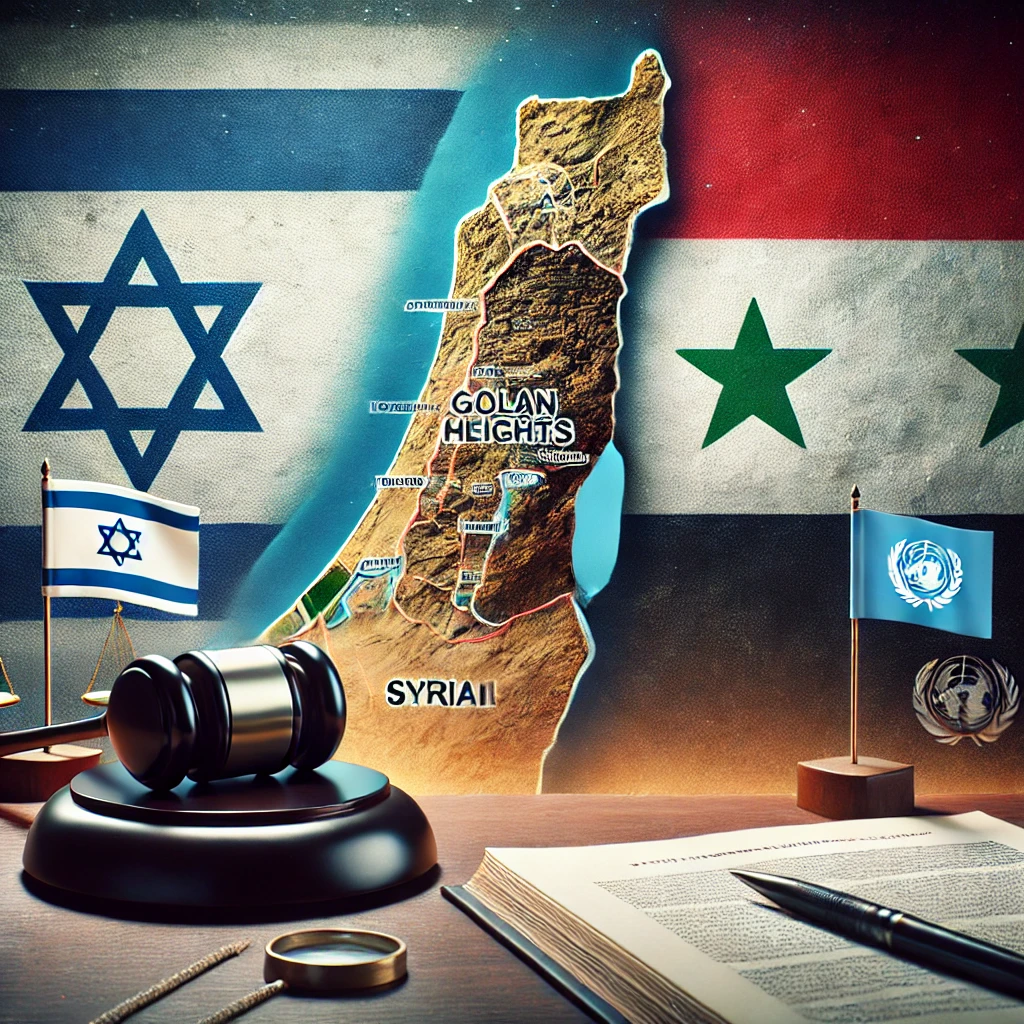In a sharp condemnation, Saudi Arabia has accused Israel of further violating international law by seizing a buffer zone in the Golan Heights. This latest move has escalated tensions in the already volatile Middle East region, prompting widespread international concern. Saudi Arabia’s statement underscores the ongoing geopolitical challenges surrounding the Golan Heights and calls for a renewed focus on the adherence to international legal frameworks.
The Golan Heights Dispute
The Golan Heights, a strategically important plateau, has been at the heart of the Israeli-Syrian conflict for decades. After Israel captured the area during the 1967 Six-Day War, it was formally annexed in 1981, a move that has not been recognized by the international community. The region, which lies on the border between Syria and Israel, has long been a point of contention, with Syria insisting that the Golan Heights is its sovereign territory.
Israel’s military and civilian presence in the area has drawn widespread criticism, particularly from Arab nations, who argue that Israel’s occupation of the Golan Heights violates international law, including United Nations Security Council resolutions that call for Israel’s withdrawal from occupied territories.

Saudi Arabia’s Response to Israel’s Latest Move
In a statement issued by the Saudi Ministry of Foreign Affairs, the kingdom condemned Israel’s recent actions in the Golan Heights, specifically the seizure of a buffer zone intended to maintain peace and security in the region. Saudi Arabia described the move as a “flagrant violation” of international law and a direct challenge to United Nations resolutions that call for Israel to vacate the occupied territories.
The Saudi government further emphasized that Israel’s actions are part of a larger pattern of disregarding international law and United Nations mandates. By expanding its control over the Golan Heights, Israel is perpetuating instability in the region, according to Saudi officials. The kingdom also reiterated its support for the Syrian government’s claims over the Golan Heights and urged the international community to take stronger action to hold Israel accountable.
The International Law Perspective
Israel’s continued occupation of the Golan Heights is a complex issue under international law. The United Nations Security Council, in Resolution 242, has called for the withdrawal of Israeli forces from territories occupied during the 1967 war, including the Golan Heights. Additionally, the Fourth Geneva Convention prohibits the acquisition of land by force, a provision Israel’s actions are often criticized for violating.
Despite the widespread international condemnation of Israel’s occupation, the country has maintained its hold on the Golan Heights, citing security concerns and its strategic importance. The area provides Israel with a critical vantage point over Syria and has significant military and water resources.
The United States, under the Trump administration, took a controversial step in 2019 by recognizing Israeli sovereignty over the Golan Heights, a move that was met with widespread opposition from the international community. Saudi Arabia, along with other Arab nations, rejected this decision and reiterated its stance on the Golan Heights as occupied Syrian territory.
The Broader Geopolitical Implications
Saudi Arabia’s condemnation of Israel’s actions comes at a time when tensions in the Middle East are already high. The ongoing Syrian Civil War, the rivalry between Saudi Arabia and Iran, and the broader Arab-Israeli conflict all contribute to the region’s volatile political environment. Saudi Arabia, as a leading power in the Arab world, has long been a vocal critic of Israeli policies, particularly in relation to Palestine and its occupation of Arab lands.
The seizure of the Golan buffer zone has further strained the relationship between Israel and its Arab neighbors. Saudi Arabia’s strong stance reflects the broader Arab consensus on the issue: the continued occupation of Palestinian and Syrian territories by Israel is unacceptable and must be addressed by the international community.
This latest development also highlights the shifting alliances and diplomatic dynamics in the region. While Saudi Arabia has shown a willingness to engage in talks with Israel, particularly in light of common concerns over Iran, issues like the Golan Heights remain deeply contentious. The international community faces a delicate balancing act in trying to manage these longstanding disputes while fostering regional stability.
The Path Forward: A Call for Accountability
Saudi Arabia’s statement calls for the United Nations and other international bodies to take concrete action against Israel’s actions in the Golan Heights. The kingdom has reiterated its support for Syria’s sovereignty over the region and has urged the global community to press Israel to comply with international law.
The future of the Golan Heights remains uncertain, with ongoing calls for a peaceful resolution to the Israeli-Syrian conflict. The situation is further complicated by Israel’s security concerns, as well as the shifting geopolitical landscape in the Middle East. However, for Saudi Arabia and many Arab nations, the fundamental issue remains clear: Israel’s occupation of the Golan Heights, and its expansion of control, is a violation of international law that must be addressed through diplomatic and legal means.
Conclusion
Saudi Arabia’s strong condemnation of Israel’s seizure of the Golan Heights buffer zone highlights the ongoing tension and legal complexities surrounding the region. As Israel continues to assert control over disputed territories, the international community faces significant challenges in upholding international law and resolving the broader Middle East conflict. Saudi Arabia’s call for accountability is part of a larger effort to promote peace and stability in the region, and it remains to be seen how the international community will respond to the growing pressure for justice in the Golan Heights and beyond.

